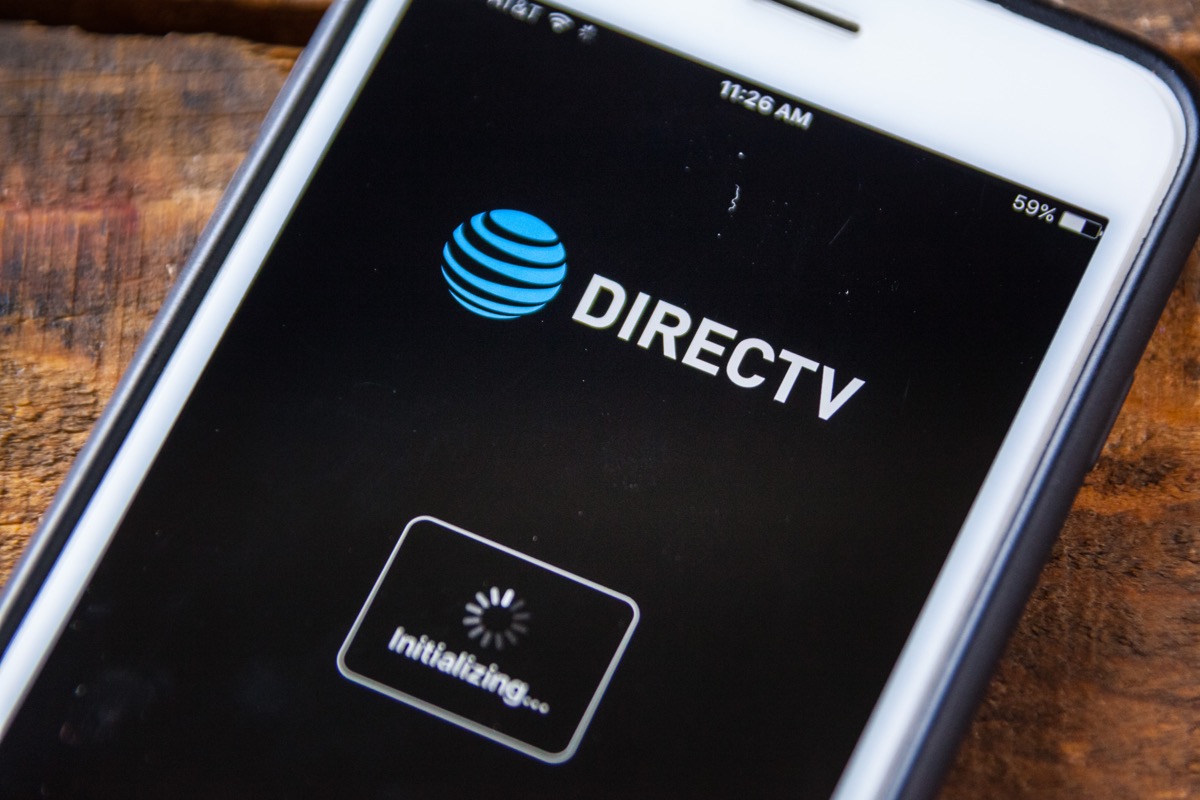If You Have AT&T, Don’t Answer This Message, Experts Warn

Once you’ve found a wireless carrier whose service you’re happy with, you’re probably eager to stick with it. After all, you use your phone for practically everything, from responding to work emails to watching your favorite TV shows. But considering the frequently high cost of many cell phone plans, slashing the cost of your bill may seem like a pretty tempting option. However, if you’ve got an AT&T phone plan, you may want to think twice before jumping at an offer to save a few bucks now that a new scam is targeting customers of the telecommunications giant. Before you put your personal information—and money—into the wrong hands, read on to find out how to spot this con and what to do if you think you’ve been targeted.
RELATED: If You Get This Message from T-Mobile, Delete It Immediately, Experts Say.
If you get a message promising discounted AT&T and DirecTV service, don’t respond.

A new scam is targeting AT&T customers, claiming that they can receive significant discounts on their AT&T and DirecTV service, ABC affiliate 9 WCPO reports.
The con begins when customers receive a message promising a 50 percent discount on the popular phone and TV services. However, when you return the phone call, a voice asks you to provide your AT&T account number and pin—and if you provide them, you may be delivering access to your account directly to scammers.
For the latest tech news delivered straight to your inbox, sign up for our daily newsletter!
Scammers may threaten to disconnect your service if you don’t comply.

While the prospect of receiving a major discount on your phone and TV service may pique your interest, that’s not the only trick scammers are using to get AT&T users to cough up their personal information.
In some instances, scammers tell the individuals they’ve contacted that they must first send money to receive the alleged discount. If you decline to pay, the scammer may threaten to cut off one or more of your services. Unfortunately, in many cases, it can be difficult to distinguish between a valid offer or a grift, since callers use spoofed phone numbers that appear to be legitimately associated with AT&T.
AT&T will never ask you for your personal information this way.

If you are concerned about the legitimacy of an offer you’ve received from AT&T or DirecTV, the best course of action is to not reply. Instead, you can search either company’s customer service number online and call back using that number, asking the rep you get in touch with whether or not the offer you’ve been given is real.
“Use caution when giving out or verifying personal or financial information over the phone. Initiate the call yourself and only call a phone number that you can verify as legitimate,” AT&T recommends, adding that you should never use your myAT&T login credentials anywhere other than the AT&T web address on your bill. “We want all customers to know that we won’t ask for personal or account information through phone calls, email, or text messages,” the company says.
If you receive one of these calls, report it immediately.

In addition to not calling the potentially spoofed number back, AT&T recommends reporting the call to the Federal Communications Commission via their Customer Complaint Center to help others from falling prey to the scam.
AT&T also recommends adding your number to the National Do Not Call Registry to reduce your risk of receiving unwanted phone calls in the future.
RELATED: If You Notice This on a Mailbox, Don’t Use It, Experts Warn.